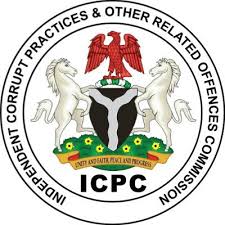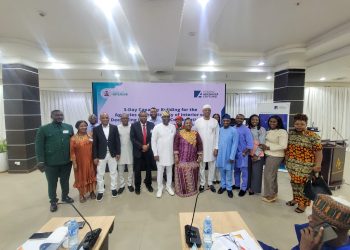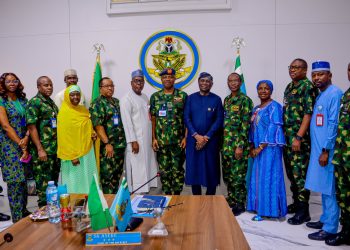By Nkechi Eze
Professor Charles Anosike, Director General/Chief Executive Officer of the Nigerian Meteorological Agency (NiMet) and Nigeria’s Permanent Representative with the World Meteorological Organization (WMO), has been elected President of the ECOWAS Committee of Directors of National Hydrological and Meteorological Services (NMHSs). His election was announced during the Committee’s 14th Meeting held from 20 to 22 May 2025 in Abuja, Nigeria.
The Committee brings together the heads of NMHSs from ECOWAS member states to foster regional coordination in weather, climate, and water-related services. It plays a critical role in enhancing early warning systems, disaster risk reduction, and climate resilience through the ECOWAS Hydromet Initiative.
In his acceptance remarks, Professor Anosike expressed deep appreciation for the confidence placed in him, vowing to champion regional synergy.
“As we confront the challenges of climate change, our collective action is crucial,” he said.
“I am honoured to lead this Committee at such a pivotal time and will work to strengthen collaboration across our national services to ensure a safer, more climate-resilient West Africa.”
Delegates from ECOWAS countries Benin, Côte d’Ivoire, The Gambia, Ghana, Guinea, Guinea-Bissau, Liberia, Nigeria, Senegal, Sierra Leone, Togo, and Cape Verde (virtually) were in attendance. Also present were regional and international partners including the WMO, ACMAD, AGRHYMET, WASCAL, the ECOWAS Commission, the World Bank, and the Maritime Organization of West and Central Africa (MOWCA).
The meeting was formally declared open by Nigeria’s Minister of Aviation and Aerospace Development, Mr. Festus Keyamo, SAN, who was joined by Dr. Ibrahim Kana, Permanent Secretary of the Ministry. One of the high points of the conference was the review of the “Early Warnings for All (EW4ALL)” initiative, a major regional agenda aiming for full implementation by 2027.
Professor Anosike’s election reaffirms Nigeria’s growing leadership in the region’s climate governance efforts and highlights the country’s commitment to innovation, sustainable development, and coordinated action in weather and climate services.















